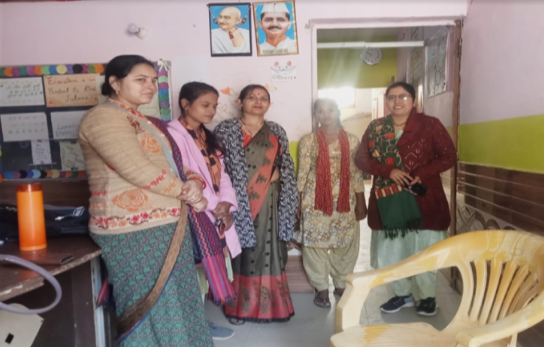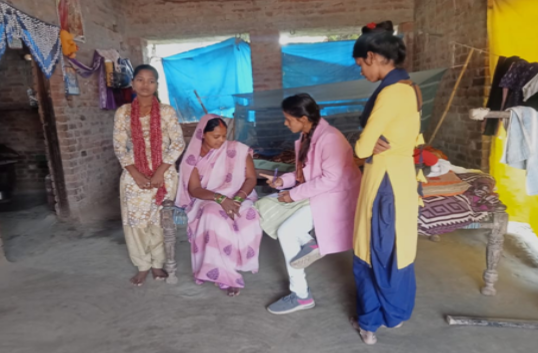How a Community Brought Sonia Back to School
eVidyaloka|July 2025
In many rural corners of India, it doesn’t take much for a girl’s education to slip into the background. A household chore here, a sibling to care for there and suddenly, school becomes optional. Sonia’s story is one such reminder of how fragile the thread of learning can be, and how community driven support systems can help hold it together.
Sonia, a bright 14-year-old from Banggawa village in Uttar Pradesh’s Siddharth Nagar district, was known for her keen interest in studies. Enrolled in Class 7 at Kasturba Gandhi Balika Vidyalaya, Uska Bazar, she was doing well—until she quietly stopped attending school after the Diwali vacation.
For Sonia, the slide away from school wasn’t about lack of ability or even willingness. With her parents working as daily wage laborers, the responsibility of household chores, tending goats, and caring for younger siblings fell on her young shoulders. Slowly, school became an afterthought.


When Warden Nisha Singh noticed Sonia’s prolonged absence, she reached out to Priyanka, the Class Assistant (CA) for the EmpowerED program at the school. Class Assistants, recruited from within the community, serve as the crucial bridge between students and volunteer teachers, ensuring the digital classroom model runs smoothly. But they do more than just facilitate learning—they care, follow up, and in this case, step in to prevent a child from falling through the cracks.
Priyanka didn’t just call Sonia’s home once—she visited multiple times. Though there were multiple reasons not to return, Priyanka persisted. Finally, after a heartfelt conversation with Sonia’s mother, gently explaining the importance of education—not just as a means to an end, but as a way to open up a different kind of future for Sonia, there was hope.
Moved by her conviction, Pramila agreed. Priyanka personally accompanied Sonia to school the next day.
Just two days later, Sonia sat for her NET paper. What may look like a simple act—showing up for an exam—was in truth the culmination of weeks of effort, empathy, and determination from Priyanka and the school’s support system. It was also a reflection of a parent’s willingness to reimagine her daughter’s future.
In rural India, it often takes more than a classroom and a curriculum to keep a girl in school. It takes people like Priyanka and Nisha—people embedded in the community, who care enough to show up, listen, and gently shift mindsets. It takes a system like eVidyaloka’s, where education doesn’t end at the screen but extends to the student’s doorstep when needed.
Sonia’s return to school is more than a personal victory—it’s a quiet revolution. It is proof that when girls are supported, believed in, and given a second chance, they show up. And they shine.

Explore how quality education empowers children to break barriers and reach their full potential.
Discuss innovative teaching methods and approaches used by education NGOs to foster a love for learning.
Shed light on the dedicated educators, staff, and volunteers who drive the NGO's educational initiatives.
